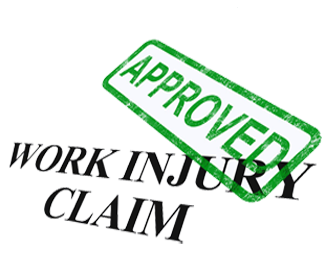Protect yourself with knowledge.
Learn more about how to get every penny you deserve.





Everything you need to know about personal injury law.
Information to know about personal injury claims:
A valid personal injury claim consists of three elements:
- Liability - Someone or some entity (company) must be legally responsible for your injury, because of doing something he or she should not have done or not done something that he or she should have done. This is commonly known as "negligence." The most common example of negligence is a rear-end car accident.
- Causation - You must be able to prove that the person's negligence was the cause of your injury. In a rear ended accident case, the question of causation is automatic when we are talking about damage to the car, but not absolute when the question of personal injury is concerned. It is the lawyer's job, with the help of your doctor, to prove that the accident caused your personal injury, and therefore your pain and need for medical treatment.
- Damages - The term "damages" refers to the effect the accident had on you, the injured party. "Damages" refers not only to the physical damage to your vehicle, but also the cost to repair or replace it. It also refers to medical expenses and/or lost wages that were caused by the accident. These are commonly known as direct "out-of-pocket" damages, or "special damages." Lastly, and often most importantly, the term "damages" refers to payment to you for your temporary or permanent pain and suffering, loss of future earnings, disfigurement, or in some cases the death of a loved one.
The most important things to know after an accident that can lead to a claim:
- Whose insurance company do you want to hear from? Know the difference between your insurance company and THE OTHER PARTY's insurance company. Your insurance company is there to help you (although it can also be your adversary if the other party is underinsured or not adequately insured). You have a duty to cooperate with your account insurance company, but you are not obligated to the other party's insurance company.
- Do I have to give a recorded statement, either in person or over the phone? You must give a recorded statement with your insurance company, but not to any other person, whether that person is an insurance adjuster, representative of a law firm, an attorney they have not retained, or any other person. If you're not sure who the person asking for the statement is (and that they work for your insurance company), then don't talk to them about the accident or your injuries. Insurance adjusters often act as if they are entitled by law to take your recorded statement, which they are not. Generally speaking, insurance companies other than your own will ultimately seek to use a recorded statement against you and not help you. Let your attorney handle the issue of the recorded statement for you.
- Are my personal injury and property damage claims the same thing? No. After an accident, you have property damage and personal injury claims. The property damage claim is usually established shortly after the accident, if there is no doubt as to fault for the accident. Property damage claim adjustment does not affect your claim for personal injuries, medical bills, lost wages, etc. Often the attorney hired to handle your personal injury claim will help your claim with property damage such as a courtesy, though not always.
- How and when will my medical expenses be paid? This depends on many factors. There can be many sources for payment of medical expenses after an accident. Ultimately, the insurance company of the party responsible for the accident will have to pay all of your medical expenses, which ends up being a part of the settlement or jury verdict at the end of your case. But down the road, while your personal injury case is pending, your medical expenses can be paid in one or more of the following ways:
- a) Medical Payments Coverage ("Med Payment") - In cases of auto accidents, the insurance coverage follows the car, but if not the car, then sometimes the person. "Med Pay" coverage will pay up to a certain amount per occupant of a car for medical expenses, regardless of who was at fault in the accident. If you were an occupant of a vehicle, whether your vehicle or someone else's, and if you were the driver or passenger, if there is "med pay" coverage on that vehicle, then the insurance company for that vehicle will pay your medical expenses up to the limit of the "pay med" coverage. Limits on "pay med" coverage can be anywhere from $1,000 per person to $100,000 per person. The good thing is that your medical expenses will be paid by the auto insurance company under "Med Pay" coverage as soon as they are incurred instead of having to wait until the case is settled or tried in court. This often allows you, as the injured party, to obtain medical treatment if you do not have any other type of medical coverage. "Med Pay" coverage may also exist in other types of accidents, such as falls in cases where the insurance policy of the place where you fell has "med pay" as part of your insurance coverage. Again, medical payments will be made regardless of whether the accident was your fault or someone else's fault, and payments are usually made without too much delay. If and when you receive a settlement or jury award, however, the insurance company that makes the medical payments is entitled to be reimbursed for the "med pay" payments that were made. This is known as a subrogation lien, and your attorney will usually negotiate and handle the payment of any subrogation lien on your behalf at the end of your case.
- b) Your own health insurance -. Your own health insurance company will pay medical bills that are associated with an accident that is someone else's or another entity's fault. Your medical providers usually submit bills to your health insurance company just like any other time you go to the doctor or hospital. The health insurance company will usually assert a subrogation lien (see above) seeking reimbursement for medical expenses paid on your behalf.
- c) Medicare or Medicaid -. If you were covered by Medicare or Medicaid at the time of the accident, or any other similar government program, the program will pay your medical bills that you incur as a result of the accident, as well as any other bills that you normally incur. Again, the government entity will often have a lien on your income from the settlement, which must be negotiated and paid at the time of your settlement with the responsible party.
- . d) Workers' Compensation - If you leave at work or within the scope of your employment when the accident occurred, even if the accident is someone else's fault, your employer's workers' compensation insurance carrier must provide you with medical treatment and pay for medical treatment. At the end of your case, however, if you collect from a third party, your attorney will have to negotiate with and/or reimburse your workers' compensation insurance company for any existing workers' compensation lien for any amounts that were paid to you. or for you. Those amounts not only include medical expenses, but also lost wages and other forms of compensation.
- . e) Letters of Protection - If you do not have any of the above types of insurance coverage or government benefits, (and sometimes even when you do), your attorney can give your medical providers a written guarantee that they will be paid from your settlement proceeds at the conclusion of your case. Often, medical providers, upon receipt of the protection letter, refrain from collection efforts against you because they realize that there is a good chance that they will be paid at the conclusion of your case, Although there is no guarantee that it will, in fact, be paid because there can be no guarantee that you will receive compensation from the third party or the third party's insurance company.
- How do I know what my property damage claim is worth? Your property damage claim is worth whether it's the cost to repair your vehicle or to replace it. Reasonable minds may differ, however, on the value of your car, but sources such as "blue books" or certain websites are often consulted to determine these values.
- How do I know what my personal injury claim is worth This is, as they say, "the $64,000 question." The bottom line: Your personal injury claim is worth what a jury will say it is worth. Of course, most personal injury claims are never decided by a jury, so your claim is worth what you and your attorney are able to convince the paying insurance company that it is worth. In other words, all parties involved try to predict what a jury might say if the case were tried. This is where the lawyer's experience is key. Naturally, the hope is to settle the claim for as much or more than we believe the jury would award as compensation, although when the case is settled, no one really knows what that figure would have been. The bottom line is, however, that the case is never settled without his decision to do so after being informed by his lawyer along the way, including at the time of settlement.
- Can I, as the injured party, affect the value of my personal injury claim? Yes. Unfortunately, injured customers probably more often negatively affect the value of the receivables than positively affect the value. Why is this true? In general, due to the lack of knowledge or experience on the part of the injured party, but also due to the lack of responsibility of the injured party, when it comes to following through with timely medical treatment.
- How can I avoid negatively affecting the value of my personal injury claim? Make sure that you do, or in some cases don't, the following things:
- a) Avoid "treatment gaps." - "gaps in treatment." Insurance adjusters love to tell the attorneys representing the insured party that the attorney's client had a "gap in treatment," or rather we all know they don't run to the doctor. or physical therapist whenever we are in pain, the insurance industry likes to argue with injured party lawyers as well as jurors that if the injured party did not go to a doctor for a period of time, the person was either unsuccessful injured, or was not injured as badly as he or she claims. The other claim from the insurance industry is that if the person had gone sooner or been more diligent in treatment, the person's injuries could have either been resolved easily or completely, and this is often a very true statement. Therefore, to avoid the "treatment gap" argument, and in order to have the best chance of maximum physical recovery, you should be very diligent in following up with your doctor and/or physical therapist on a regular basis. Don't miss appointments. Do not stop doing your exercises at home that your doctor or therapist gives you. Don't allow an extended period of time to go by without going to the doctor or therapist if you are still in pain. When you are in pain, it is not only important that your condition be properly treated, but also that your condition be documented. You must be very diligent in following up with your doctor and/or physical therapist on a regular basis. Don't miss appointments. Do not stop doing your exercises at home that your doctor or therapist gives you. Don't allow an extended period of time to go by without going to the doctor or therapist if you are still in pain. When you are in pain, it is not only important that your condition be properly treated, but also that your condition be documented. You must be very diligent in following up with your doctor and/or physical therapist on a regular basis. Don't miss appointments. Do not stop doing your exercises at home that your doctor or therapist gives you. Don't allow an extended period of time to go by without going to the doctor or therapist if you are still in pain. When you are in pain, it is not only important that your condition be properly treated, but also that your condition be documented.
- b) Be truthful and accurate when speaking with your health care providers. Sometimes things you say to your doctor or therapist can be used against you by opposing attorneys, even out of context. For example, when you say, "I'm fine today," does that mean that the day is going well, or that your pain level has improved, or that the pain has completely disappeared? It is of the utmost importance that you never exaggerate your pain level or your ability to perform certain tasks. For the same reason, it can also be detrimental to your case to give the false impression by telling your providers that you are no longer having any physical symptoms with the part of your body that was affected by the accident. If you still have pain, say so. If you're better, say so
- c) Always inform your lawyer immediately about any past medical conditions, criminal convictions or employment problems. Credibility is everything when it comes to personal injury claims. Insurance adjusters, defense attorneys and, in the event of a trial, juries, are going to form an opinion about what kind of person you are. If you are perceived as less than honest, the value of your case, whether for settlement purposes or at trial, will suffer.
Everything you need to know about personal injury law.
Things to know about personal injury claims:
A valid personal injury claim consists of three elements:
- Liability – Someone or some entity (company) must be legally responsible for your injury because of doing something that he or she should not have done or not doing something that he or she should have done. This is commonly referred to as, “negligence.” The most common example of negligence is a rear-end auto accident.
- Causation – You must be able to prove that the person's negligence was the cause of your injury. In a rear-ended accident case, the question of causation is automatic when we're talking about the damage to the car, but not absolute when the question of personal injury is concerned. It is the lawyer's job, with the help of your physician, to prove that the accident caused your personal injury, and therefore your pain and need for medical treatment.
Damages – The term “damages” refers to what effect the accident had upon you, the injured party. “Damages” refers not only to physical damage to your vehicle, but also to the cost to either repair or replace it. It also refers to medical bills and/or lost wages that were caused by the accident. These are commonly known as “out-of-pocket” damages, or “special damages.” Lastly, and often most importantly, the term “damages” refers to payment to you for your temporary or permanent pain and suffering, loss of future earning capacity, disfigurement, or in some cases death of a loved one.
The most important things to know after an accident that may result in a claim:
- Whose insurance company wants to know? Know the difference between YOUR insurance company and THE OTHER PARTY'S insurance company. Your insurance company is there to help you (although it may also become your adversary if the other party is not insured or not adequately insured). You have a duty to cooperate with YOUR OWN insurance company, but NO OBLIGATION to the other party's insurance company.
- Should I give a recorded statement, either in person or over the phone? You should give a recorded statement to YOUR insurance company, but to no other person, whether that person is an insurance adjuster, representative of a law firm, an attorney that you have not retained, or any other person. If you're not sure who the person is that is asking for the statement (and that they work for your insurance company), then don't speak to them about the accident or your injuries. Insurance adjusters often act as if they are entitled by law to take your recorded statement, which is not true. Generally speaking, insurance companies that are not your own will ultimately seek to use a recorded statement against you and not to help you. Let your lawyer handle the issue of the recorded statement for you.
- Are my claims for property damage and personal injury the same? No. After an accident, you have separate claims for property damage and for personal injury. The property damage claim is usually settled not long after the accident, if there is no question as to fault for the accident. The setting of the property damage claim does not affect your claim for personal injury, medical expenses, lost wages, etc. Often, the lawyer retained to handle your personal injury claim will assist your with the property damage claim as a courtesy, although not always.
- How and when will my medical expenses be paid? This depends on many factors. There can be many sources for payment of medical expenses after an accident. Ultimately, the insurance company for the party responsible for the accident will have to pay all of your medical expenses, which ends up being a part of the settlement or jury verdict at the end of your case. But along the way, while your personal injury case is pending, your medical expenses may be paid in one or more of the following ways:
- a.) Medical payments coverage (“Med pay”) – In automobile accident cases, insurance coverage follows the car, but if not the car, then sometimes the person. “Med pay” coverage will pay up to a certain amount per occupant of a car for medical expenses, regardless of who was at fault in the accident. If you were an occupant of a vehicle, whether your vehicle or someone else's, and whether you were the driver or the passenger, if there is “med pay” coverage on that vehicle, then the insurance company for that vehicle will pay your medical expenses up to the limit of “med pay” coverage. Limits of “med pay” coverage can be anywhere from $1,000 per person to $100,000 per person. The nice thing is that your medical bills will be paid by the auto insurance company under the “med pay” coverage as soon as they are incurred instead of you having to wait until the case is settled or tried in court. This often allows you, as the injured party, to obtain medical treatment if you don't have any other type of medical coverage. “Med pay” coverage may also exist in other types of accidents, such as fall down cases when the insurance policy of the place where you fell has “med pay” as part of its insurance coverage. Once again, medical payments will be made regardless of whether the accident was your fault or someone else's fault, and payments will usually be made without too much delay. If and when you receive a settlement or jury award, however, the insurance company that made the medical payments is entitled to be reimbursed for the “med pay” payments that were made. This is known as a subrogation lien, and your attorney will usually negotiate and handle the payment of any subrogation liens on your behalf at the end of your case.
- b.) Your own medical insurance – Your own medical insurance company will pay medical bills that are associated with an accident that is another person or another entity's fault. Your medical providers will usually submit the bills to your medical insurance company just like any other time that you go to the doctor or hospital. The medical insurance company will usually assert a subrogation lien (see above) seeking reimbursement for any medical expenses that have been paid on your behalf.
- c.) Medicare or Medicaid – If you were covered by Medicare or Medicaid at the time of the accident, or any other similar government program, that program will pay your medical bills that you incurred as a result of the accident, just as any other bills that you typically incur. Once again, the governmental entity will often have a lien on your settlement proceeds, which must be negotiated and paid at the time of your settlement with the responsible party.
- d.) Worker's compensation – If you were on the job or acting within the scope of your employment when the accident occurred, even if the accident is someone else's fault, your employer's worker's compensation insurance company must provide you with medical treatment and pay for the medical treatment. At the end of your case, however, if you collect from a third party, your attorney will have to negotiate with and/or reimburse the worker's compensation insurance company for its worker's compensation lien that exists for any sums that it paid to you or for you. Those sums not only include medical expenses, but also lost wages and other forms of compensation.
- e.) Letters of protection – If you have none of the above types of insurance coverage or government benefits, (and sometimes even when you do), your attorney may provide written assurance to your medical providers that they will be paid from your settlement proceeds at the conclusion of your case. Often, the medical providers will, upon receipt of the letter of protection, refrain from collection efforts against you because they realize that there is a good chance that they will be paid at the conclusion of your case, even though there is no guarantee that they will in fact be paid because there can be no guarantee that you will receive compensation from the third party or the third party's insurance company.
- How do I know what my property damage claim is worth? Your property damage claim is worth either the cost to repair your vehicle or to replace it. Reasonable minds may differ, however, on the value of your car, but sources such as “blue books” or certain web sites are often consulted to determine these values.
- How do I know what my personal injury claim is worth? This is, as they say, “the $64,000 question.” The bottom line: your personal injury claim is worth what a jury will say that it is worth. Of course, most personal injury claims are never decided by a jury, so your claim is worth what you and your attorney are able to convince the insurance company responsible for payment that it is worth. In other words, all parties involved try to predict what a jury would say if the case were tried. This is where the lawyer's experience is key. Naturally, the hope is to settle the claim for as much or more than we believe the jury would give as compensation, although when the case is settled, no one ever really knows what that figure would have been. The bottom line is, however,
- Can I, as the injured party, affect the value of my personal injury claim? Forks. Unfortunately, injured clients probably more often negatively affect the value of their claims than positively affect the value. Why is this true? Generally because of a lack of knowledge or experience on the part of the injured party, but also because of the injured party's lack of responsibility when it comes to following through with timely medical treatment.
- How do I avoid negatively affecting the value of my personal injury claim? Make sure that you do, or in some cases do not do, the following things:
- a.) Avoid “gaps in treatment.” – Insurance adjusters just love to tell lawyers who represent the insured party that the lawyer's client had a “gap in treatment,” or several “gaps in treatment.” While we all know that we don't run to the doctor or physical therapist every time we have a pain, the insurance industry likes to argue to lawyers to injured parties, as well as to juries, that if the injured party didn't go to a doctor for a period of time, the person either wasn't hurt, or wasn't hurt as badly as he or she claims. The other claim from the insurance industry is that if the person had gone sooner or been more diligent about treatment, the person's injuries might have resolved either easier or completely, and this is often a very true statement. So, to avoid the “gap in treatment” argument, and in order to have the best chance of maximum physical recovery, you should be very diligent about following up with your doctor and/or physical therapist regularly. Do not miss appointments. Do not fail to perform your home exercises that your doctor or therapist gives you. Do not allow an extended period of time to pass without going to the doctor or therapist if you still have pain. When you have pain, it is not only important that your condition be appropriately treated, but also that your condition be documented. Do not allow an extended period of time to pass without going to the doctor or therapist if you still have pain. When you have pain, it is not only important that your condition be appropriately treated, but also that your condition be documented. Do not allow an extended period of time to pass without going to the doctor or therapist if you still have pain. When you have pain, it is not only important that your condition be appropriately treated, but also that your condition be documented.
- b.) Be truthful and accurate when speaking to your medical providers. – Sometimes, the things you say to your doctor or therapist can be used against you by opposing attorneys, and even taken out of context. For example, when you say, “I'm fine today,” does that mean that your day is going well or that your pain level has improved or your pain is gone completely? It is of the utmost importance that you never exaggerate your pain level or ability to perform certain tasks. By the same token, it can also be detrimental to your case to give a false impression, by what you say to your providers, that you are no longer having any physical symptoms with the part of your body that was affected by the accident. If you still hurt, say so. If you're better, say so, but make sure you clarify the degree and meaning of “better.”
- c.) Always inform your attorney right away about any past medical conditions, criminal convictions or employment problems. – Credibility is everything when it comes to personal injury claims. Insurance adjusters, defense attorneys and, in the event of a trial, jurors, are going to form an opinion about what kind of person you are. If you are perceived as less than honest, the value of your case, whether for settlement purposes or at trial, will suffer.
